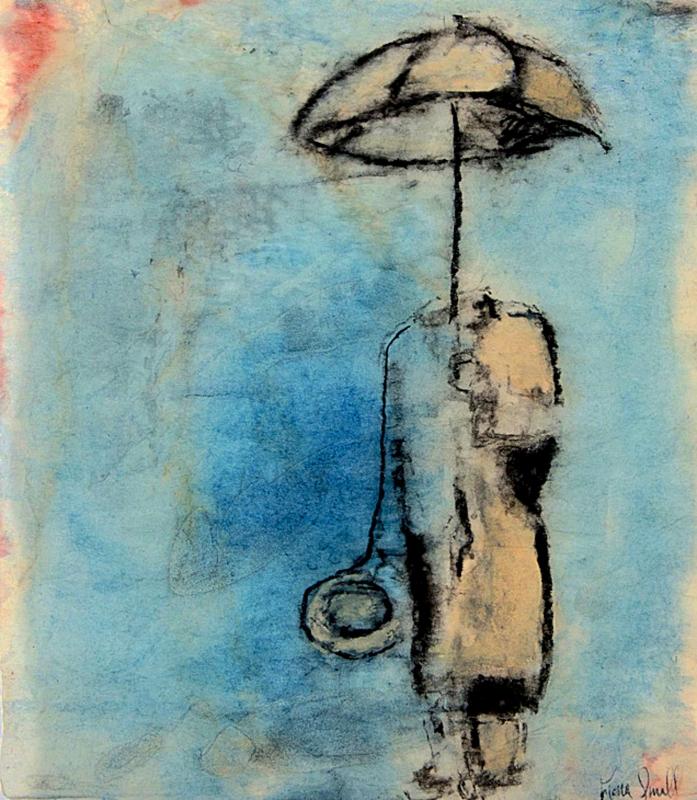The poetry in this issue features essayists, sonneteers, aphorists, and dialogists. Where these poets diverge in form, however, they reconvene in the poetic motif of loneliness.
“Lonely Empire” sets the tone for the whole showcase, examining an economically isolated man who sinks beneath the heaviness of a “concrete city, steel gray sky and death.” Directly following is “Atrophy,” the work of a short-winded aphorist who worries about the decline of the poetic imagination in an iron-sullied world.
The selection “From ‘9 Poems’” is more essay than poem and consequently boasts a broad thematic range. It wants to know the “surplus of life” that lovers know, at the same time recognizing that “our life is the wreckage of our goodness.” Its correlate is definitely “From “The Book of Consumption,” Poem #25,” a piece which, in a similarly essayistic fashion, works upon the interacting themes of love and tragedy.
The poets of “Rainy Naples” and “The Man of Uz” are watchers. The former observes a lone crow casting his eye over the gloomy dark of the city, while the latter gazes up the stairs at a lover, soliciting her to come down and “recover the balance of ecstasy.”
“I am dreaming of a quiet place” longs for a haven where authentic meditation is possible. In contrast to its predecessors, the poet is quite deliberate about seeking solitude:
I have been dreaming of a quiet place
Upon an ancient hilltop.
It stands alone in crumbled words somewhere…
The seriousness of the above poems is refreshed, for a moment, by the self-effacing sonneteer of “Fvlfyllment.” Yet as the sonneteer comically mocks his unluckiness with the ladies, he sings the same lonely chorus as the rest.
Even those among our poets who dance the basic dance of being find that they are engaged in a “Danse Macabre.” Given that poetry seems to offer no way out of loneliness, then, it comes as no surprise that one of the voices from the dialogue, “Speaking of Being Mute,” wonders about not speaking at all. “[W]hat is not spoken,” she speculates, “is not always withheld.”
It is up to you now to decide whether these poems are readily eloquent or mutely withholding. As a collective body, they are incoherent. As individual enunciations, however, they seek solace in a readership that comprehends their feeling of isolation. Read, then, and bring them into the community of the lonely.

